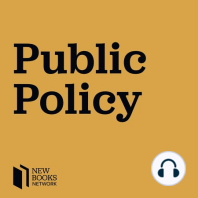57 min listen
Unavailable

Currently unavailable
William Gale, "Fiscal Therapy: Curing America's Debt Addiction and Investing in the Future" (Oxford UP, 2019)
Currently unavailable
William Gale, "Fiscal Therapy: Curing America's Debt Addiction and Investing in the Future" (Oxford UP, 2019)
ratings:
Length:
47 minutes
Released:
Apr 24, 2019
Format:
Podcast episode
Description
The US government is laboring under an enormous debt burden, one that will impact the living standards of future generations of Americans by limiting investment in people and infrastructure. In his new book, Fiscal Therapy: Curing America's Debt Addiction and Investing in the Future (Oxford University Press, 2019), Brookings Institution senior scholar William Gale tackles the challenge head on, addressing what needs to happen to healthcare spending, Social Security, individual taxes, and corporate taxes, in order to make the numbers add up. It makes for sober reading, and the longer we wait, the worse the situation becomes. And the key challenge may not even be fiscal, but political, as the disagreements in Washington over the debt are as deep as the debt is large. Gale ends by making a few simple, inside-Washington suggestions as to how he thinks the political impasse can be broken.Daniel Peris is Senior Vice President at Federated Investors in Pittsburgh. Trained as a historian of modern Russia, he is the author most recently of Getting Back to Business: Why Modern Portfolio Theory Fails Investors. You can follow him on Twitter @Back2BizBook or at http://www.strategicdividendinvestor.comLearn more about your ad choices. Visit megaphone.fm/adchoices
Released:
Apr 24, 2019
Format:
Podcast episode
Titles in the series (100)
Gary J. Adler, Jr., "Empathy Beyond US Borders: The Challenges of Transnational Civic Engagement" (Cambridge UP, 2019): Do immersion trips really transform those who participate and how so? by New Books in Public Policy